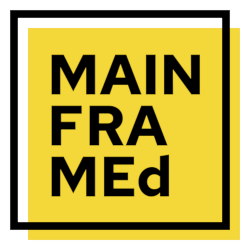MQ Application Development
Code: MQADDescription
The course will enable delegates to develop the skills needed to design and write programs that issue calls to the Message Queue Interface (MQI). The hands on exercises will give delegates practice of coding MQ calls in COBOL, PL1, RPG, C, C++, C#, .Net or Java. The operating system platform can be either Windows, Linux, UNIX, iSeries or z/OS using IBM MQ. The course is also ideal for preparing delegates for the IBM MQ exams.
The course is delivered at the latest release level and regularly updated to include any new features. Previous release levels are available on request.
Audience
This course is for experienced application developers who will be writing programs that use the messaging and queuing techniques provided by IBM MQ. Systems and Business analysts will also benefit.
Prerequisites
Prospective delegates are expected to be experienced application developers in the relevant environment.
No prior knowledge of MQ is required.
Objectives
On completion of the course delegates will be able to:
- Describe and use the Message Queue Interface.
- Design and write programs to use MQI as implemented on their chosen platform.
- Explain the differences in program design necessitated by the messaging and queuing paradigm.
- Describe, in detail, the different MQI calls.
- Explain the differences in MQI across the different MQ platforms.
- Design and write programs that use the advanced features of the MQI including security, message groups, segmentation and distribution.
Topics
Introduction to IBM MQ and Consolidation of Terms
The Big Picture.
Queue Manager.
Queues.
Local queues.
Model/Dynamic queues.
Alias queues.
Transmission queues.
Remote queues.
Initiation queues.
Dead Letter Queue.
Reply to queue.
Repository Queue.
Messages.
Distribution List.
Process Definition.
Channels.
Message Channel Agent.
Message Queue Interface.
Handling MQ Objects (Platform Dependent)
Mainframe.
CSQUTIL.
i/SERIES.
MQEXPLORER.
Creating a Queue Manager.
Creating a Queue.
Sending a message to your local default queue.
To view what is on the queue.
Useful Programs.
Message Sets.
Error Handling
Locally Determined Errors.
Remotely Determined Errors.
Debugging.
Common Return Codes.
Application Programming
Message Queue Interface.
Connecting to a Queue Manager.
Disconnecting from a Queue Manager.
Opening a Queue.
Security.
MQMD.
Options.
Closing a Queue.
Putting a Message on a Queue.
MQMD Contents.
Msgtype.
Message expiry.
Feedback Field.
Encoding Field.
Coded Character Set Id.
Format Field.
Priority.
Persistence.
Message ID.
Correlation ID.
Reply To Queue.
No Syncpoint/Syncpoint.
Fail If Quiescing.
Context Information.
MQPUT1.
Getting a message from a Queue.
MQGET.
Options.
No Wait/Wait.
Accept Truncated Msg.
Match Msg/Correl Id.
Waitinterval.
Browsing a Queue.
Other Commands
MQCMIT/MQBACK.
MQINQ/MQ.
Development and Testing
Triggers
Dead Letter Queue
Distribution/Name Lists and Clusters
Reports
Message Broker Overview
Java Messaging Services
JMS Concept.
JMS Components.
API’s.
Accounting
Publish and Subscribe
Terms.
Publish Applications.
Subscribe Application.
Sample Programs.
Creating a Topic.
Creating a Subscription.
Alter a Subscription.
Delete a Subscription.
Display a Subscription.
Topic Alias.
Message Properties
Commands:
• MQCRTMH.
• MQSETMP.
• MQINQMP.
• MQDLTMP.
Testing Properties.
Viewing Properties.
Price (ex. VAT)
Duration
Schedule
Delivery methods
- Classroom
- On-site (at your location)
- Virtual (instructor online)
